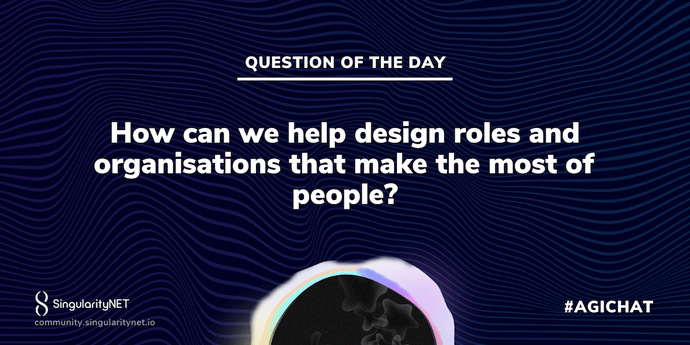It widely understood how to assemble and motivate effective teams. You carefully recruit people with talent and experience. You give them clear direction, objectives and the support they need. You give them a voice. You give them purpose, encouragement and a sense of community. You offer leadership and the chance to grow.
Roles aren’t designed. Roles are defined. It’s gotta be clear to everyone who is responsible for what. And who answers to who. Smart organizations make the most of people by assembling teams of experienced individuals with well-defined complementary roles, clear objectives and direction.
As a former “volunteer” I currently perceive Snet as an opaque, cliquey, political organization where people have poorly-defined roles and responsibilities. That’s my perception only. Does anyone else feel this way?
Who are all these people listed as team? What is their level of engagement? What is an employee? What is a volunteer? What is the implication of being a tokenholder?
One minute someone is a “volunteer community member” next they are an “employee”. How does this upgrade occur? Lack of transparency encourages gossip, rumor and politics.
Some volunteers have the authority to reward other volunteers with AGI. How does that work?
Then there are tokenholders. I won’t bring up the S word as there’s a lot of understandable angst about what ownership legally implies. But doesn’t long term substantial tokenholding suggest loyalty and commitment? So what does that mean for role and responsibility?
As a tokenholder I want to look after my interests. Working as a volunteer seemed a logical way to do that. But in my experience Snet volunteers are offered little meaningful strategic direction or understanding of objectives. What’s the path for their involvement and development?
Maybe we need activist tokenholders? A union of tokenholders to champion the rights of minority holders? These are questions to ponder.
It’s early days for this venture. It’s a strange new beast in scope and structure.
I am consistently impressed by many aspects of the organization in operational terms. Other aspects less so.
Who am I to say? Well I’ve worked as a C-suite consultant to over 100 organizations of every size and shape. From top academic institutions to multinationals, startups, government, and everything inbetween. I’ve even seen inside cults.
I’ve heard from the horse’s mouth about the problems organizations have keeping their shit together. I’ve had a ringside seat at how they solve those problems and thrive.
For me the Snet story is hugely intriguing and an ongoing source of fascination. I’ve personally got a lot of value from involvement.
Whether Snet can mature into a truly effective force remains to be seen. It’s encouraging to see a question of the day that’s apparently relevant to near term goals.
It appears crucial for Snet to win at the recruitment game. Perhaps the answers to this question should inform a tightly focused, ongoing recruitment drive aimed at attracting the best emerging talent in the hotly contested AI field. Involving recruitment agencies in this process looks risky.
How about something like this for a more hardball question of the day: Can an organization explicitly dedicated to transparency, inclusiveness and democracy achieve credibility by operating in a secretive, opaque, non-inclusive way?


